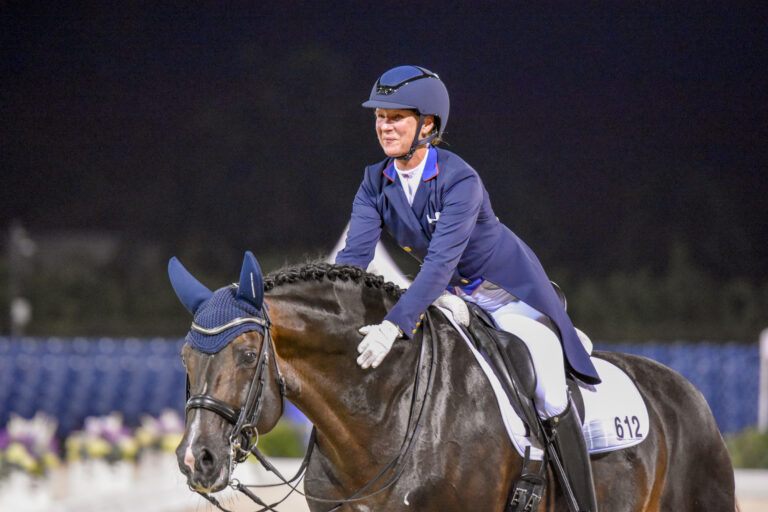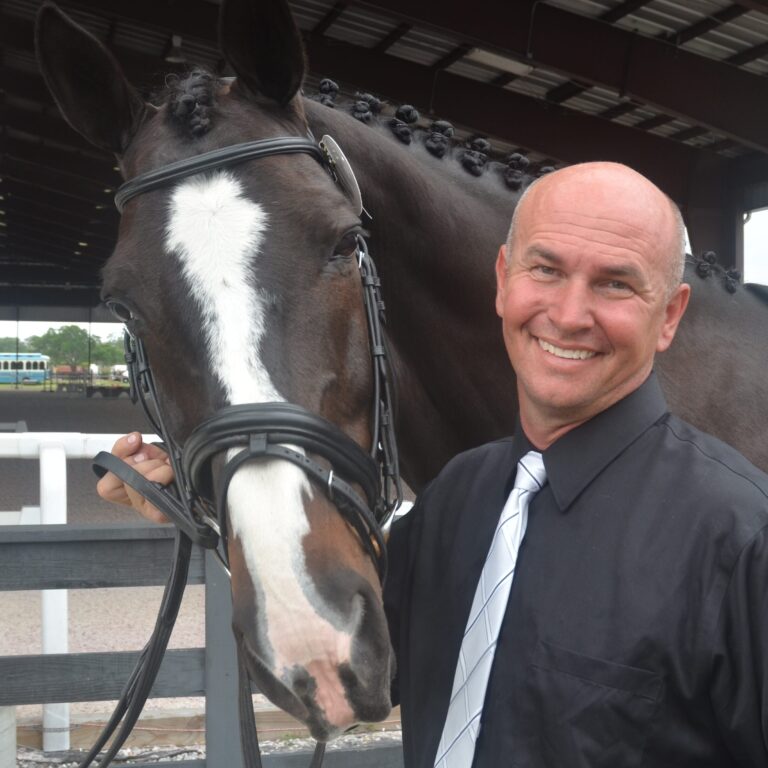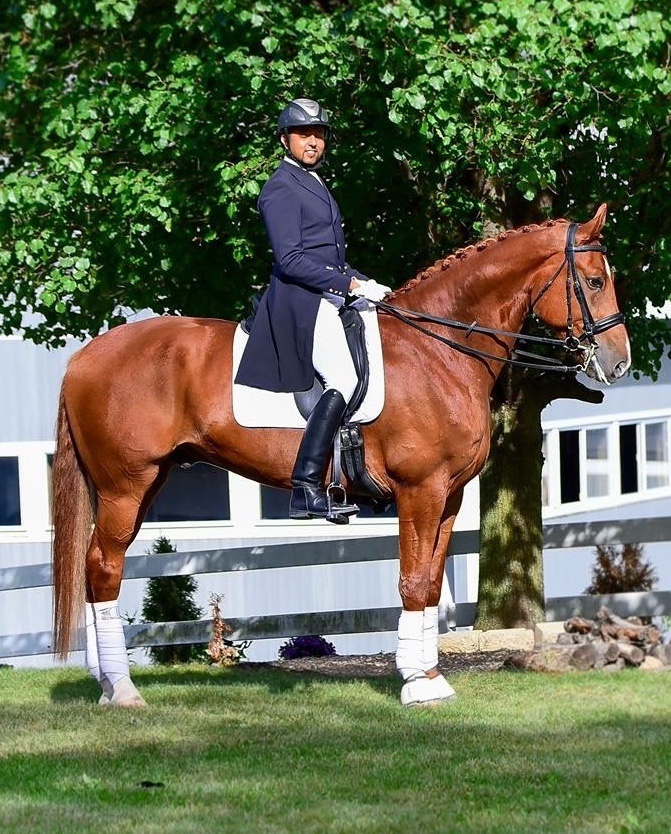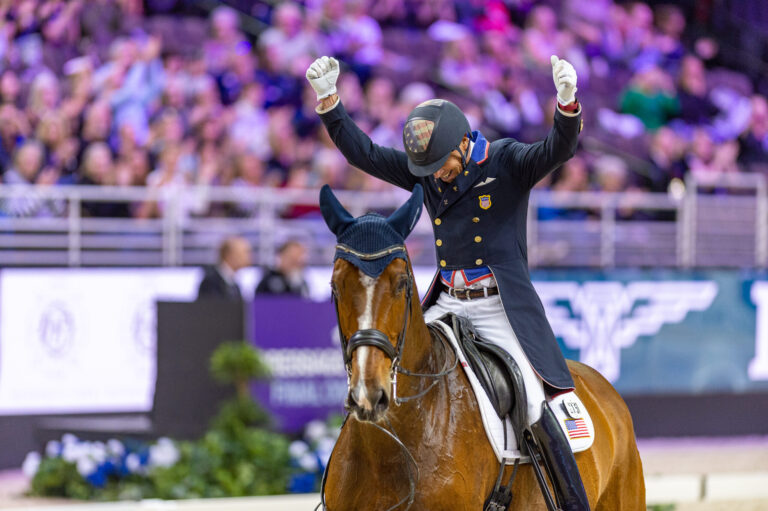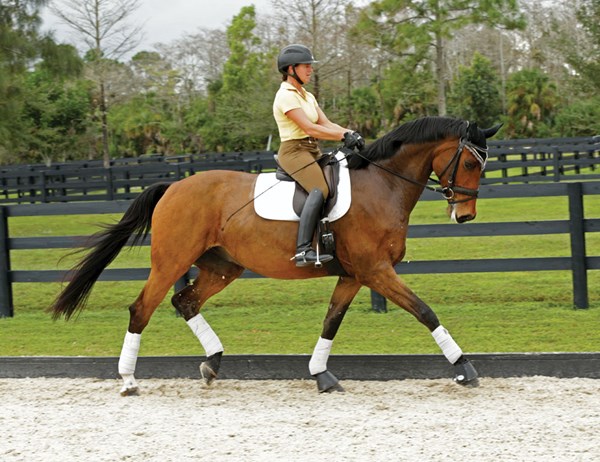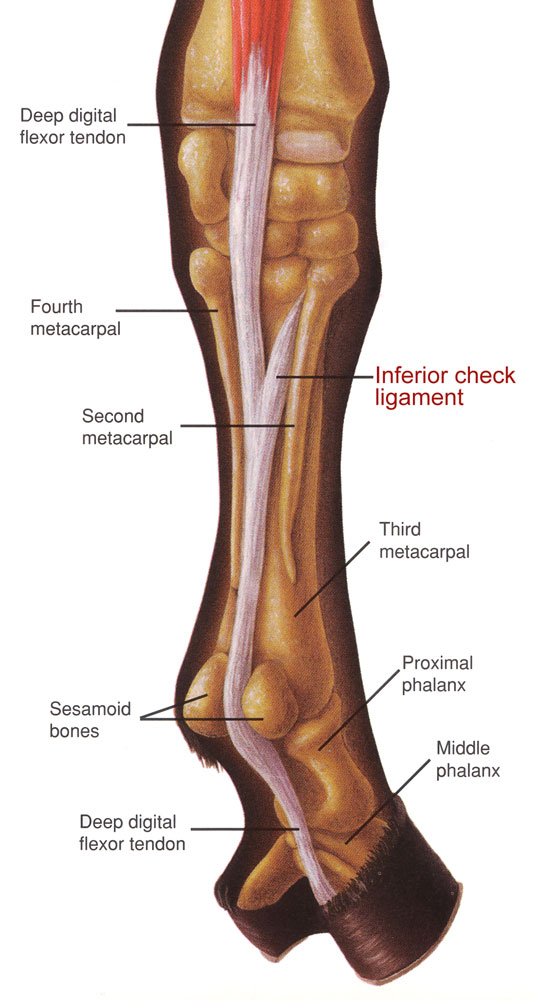Kim McGrath considers a positive and supportive culture to be a prerequisite for creating good horsemen and willing, athletic equine partners. She had discovered her passion for horses at a young age and rode western as a child before finding the hunter/jumper ring. Her off-the-track Thoroughbred at the time had soundness issues, and she fell in love with dressage while working him on the flat. As a young adult, she wanted to make it her life. That’s when two experiences with radically different barn cultures dramatically altered the trajectory of her life and career.
“During college, I was a working student for someone who didn’t seem to love what they were doing anymore,” McGrath recounted. “I remember making a conscious decision at that point that I didn’t want to do it professionally because I loved the sport too much. I didn’t ever want it to feel like how it seemed to feel for that person.”
She later found an environment more suited to her personality, which ultimately shaped her life and personal philosophies. “She was in her 40s and seemed as enthusiastic about it as she would have been the first time she ever sat on a horse,” McGrath described her trainer. “Every day became fun. When horses were naughty, she made jokes. Horse shows were fun again. It was a totally different experience and it made me rethink doing it professionally.”
Focused Fun
The latter experience helped propel McGrath into her career. When she opened Sunset Hills Dressage in Redlands, California, she resolved to build it with that same kind of fun and positive environment that had reignited the spark to go pro. She calls it “focused fun.”
“It’s such a hard sport and horses can be so heartbreaking, so I think it’s important to keep the atmosphere as positive as possible,” she said. “You can be serious about the training, but it’s also about enjoying the horses and feeling like part of a supportive community.”
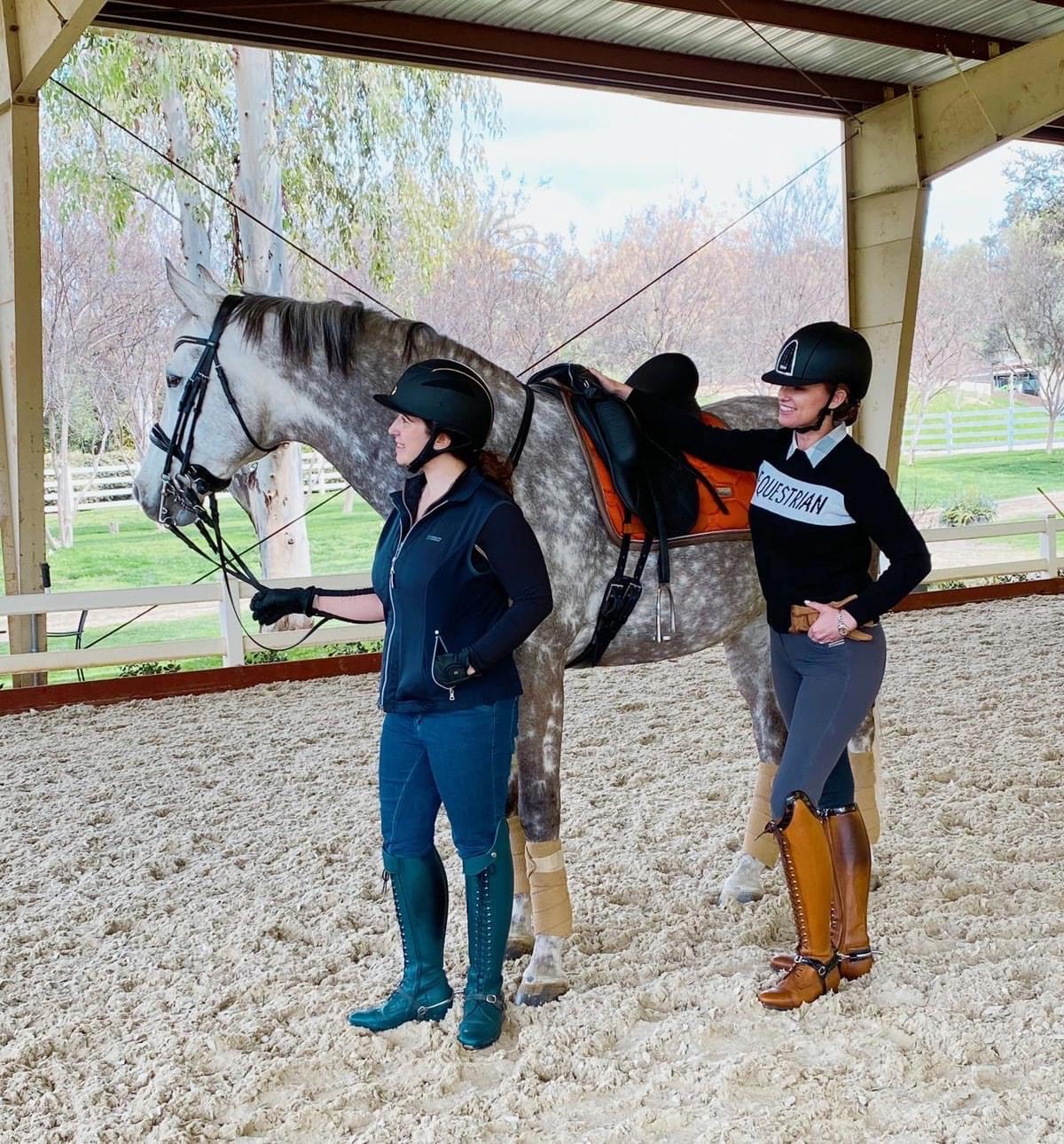
That’s not always easy, she admits. Arguably, type-A personalities tend to dominate the horse world. These are highly competitive, extremely organized, and ambitious personalities who are keenly aware of time management. Some might argue that competitive riding demands these qualities to be successful. But they can also rather ironically sabotage a rider’s ability to connect with her horse and even the people around her if not balanced with the right culture.
“I work with a lot of perfectionists in a sport where we can never be perfect,” McGrath said. “When we are performing well, sometimes that equates to a C average. That’s ok. That’s why I try to keep it fun and make jokes. I never want my riders leaving the ring feeling discouraged.”
As she does with her clients, McGrath treats each horse as an individual and tailors a plan to suit each. This kind of equitable treatment leads to an environment where people and horses feel like equals, and they feel like they have permission to be imperfect. Everyone is allowed to fail without judgement as long as they try hard and learn from it.
“I have a new client who was adamant about scheduling lessons when nobody else would be around because she didn’t want an audience,” McGrath said. “I can understand that, and that’s okay. But I recently had a lesson with her on a day when everyone was off work and happened to be out riding. After her lesson, I was happy to see her so relaxed and totally reassured. I think just feeling accepted and like she had permission to learn and make mistakes changed everything for her.”
McGrath said she’s watched that kind of supportive, yet unassuming, culture focus competitive drive inward instead of toward others. Just as her client felt comfortable enough to learn without judgement in front of her peers, riders have expressed that they also feel free to embrace their victories, which can be equally as important in stoking everyone’s ambitions.
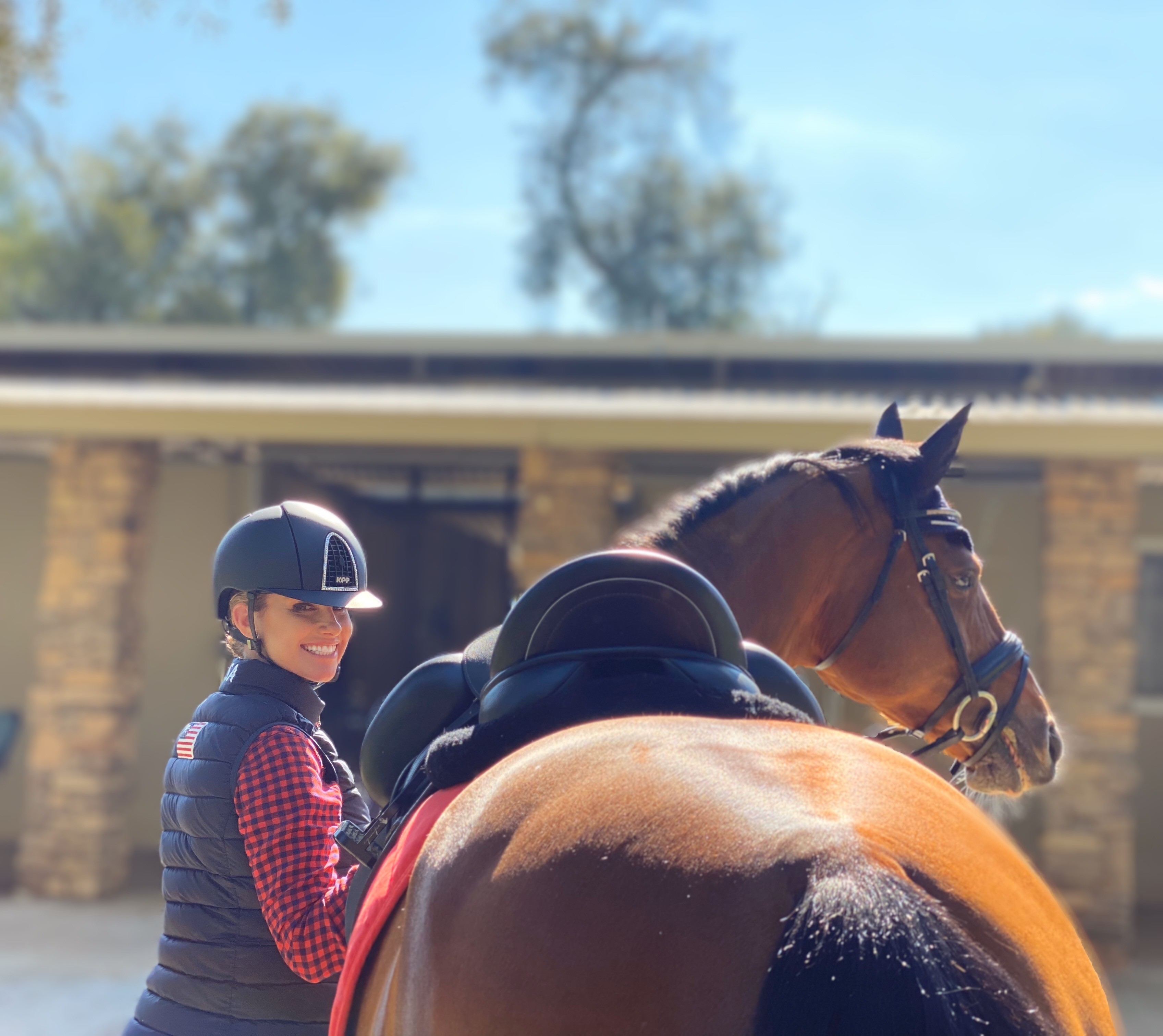
Dealing with Disappointment
McGrath has also seen some type-A personalities deflate under the pressure they put upon themselves because of that ambition. While it’s one thing to nurture a thriving environment and quite another to empathize with disappointment, the latter is just as important in maintaining the delicate balance of a supportive ecosystem.
“I think that riders will often have reasonable expectations for their horses but not themselves,” McGrath said. “They understand that the horses are sometimes going to struggle to figure things out, but they don’t necessarily understand that they are going to struggle, too. That’s when I encourage them to give themselves the same patience they’d show their horses.”
McGrath knows it has to rain sometimes. People can’t always win and that’s ok. On those days, she heeds advice from equine-focused sports psychologist, Darby Bonomi.
“My instincts always told me to ignore those disappointing feelings; just get over it and move on, right?” McGrath said. “But Darby has instead encouraged me to feel it. After a disappointing ride, I allow myself a five-minute pity party because that’s natural, as long as I don’t overdo it. That’s helped me tremendously, and it’s also helped my clients when they come out of the ring after a disappointing ride.”
For others, feeling permission to process the heavier days extends beyond the ring. Cristina Kayvon trains with McGrath once a week and by day is a Deputy Probation Officer for Riverside County, California. “I check in on gang members after they’re released from prison and it’s my job to ensure they’re doing what they’re supposed to be doing, which, many times, they are not,” Kayvon explained. “Sometimes it’s particularly hard to clock out at the end of the day.”
For her, even one day a week has helped bring balance into her life. Even if that one precious lesson doesn’t go as planned, Kayvon knows McGrath and the others will be there to crack a joke, laugh with her, and reassure her that whatever she’s feeling, it’s ok to feel it. They’ll still be there to remind her why she keeps trailering in every week. “I think everyone needs some good-hearted connection after a rough day whether it happens in the barn or on the street,” Kayvon said.
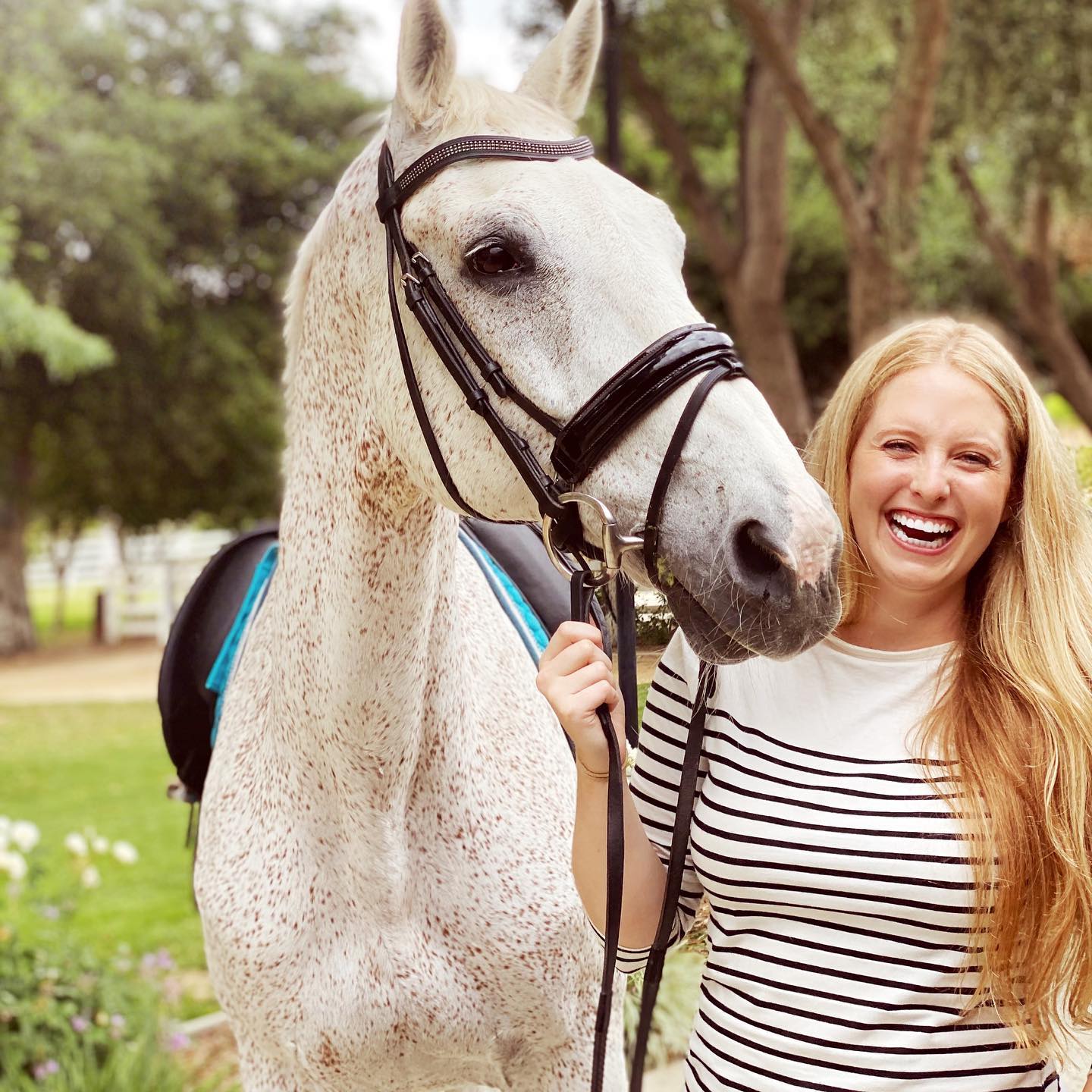
Permission to be Honest
While it’s never been a problem for Kayvon and most of the riders at Sunset Hills Dressage, some personalities simply do not mesh. McGrath has learned that nurturing an ecosystem’s balance also means having enough respect for others to be honest with them and speak candidly when things simply aren’t working.
“I have a zero-tolerance policy for any sort of drama or negative behavior,” she said. “Most people understand that and feel comfortable behaving accordingly. But there have been times when I just had to tell someone that it wasn’t a good fit. I’ve been doing this long enough and have seen how one person’s attitude can affect an entire barn. It’s not necessarily that anything bad is going to happen, it’s just that I could see it adding more stress to a sport full of personality types where stress can very easily take over if you let it.”
Likewise, responsibly advising ambitious riders keen on rocketing toward their goals can be tough, she said. Naturally, she wants her riders to succeed, but she also doesn’t want to douse their competitive sparks by being real with them. That’s why an open environment where people feel as comfortable speaking honestly as they do receiving honest feedback is crucial.
“When you have someone, for instance, comparing their low-level packer to a $115,000 horse, sometimes you have to have that tough, honest conversation, and you have to trust that he or she will be reasonable about it,” McGrath said. “Other times, someone may have the budget for an upper-level horse, but they don’t have the ability. I have to feel like I have permission to have that tough conversation and know that they’ll understand that it’s coming from a place of mutual respect.”
Positive Barn Culture Helps Horses
Horses are at least as sensitive as people can be. A horse fly weighs 12 milligrams. The average performance horse weighs over 1000 pounds. That horse can feel that fly land anywhere on its body. Like humans, a horse’s sensitivity to his surroundings has helped him survive and evolve for centuries. Any nervous rider who’s sat on a hot horse before a consequential competition can assure you that her horse senses her stress the same way he does a fly. As much as a positive culture helps support and elevate people, it quite literally makes more relaxed and willing equine partners as well.
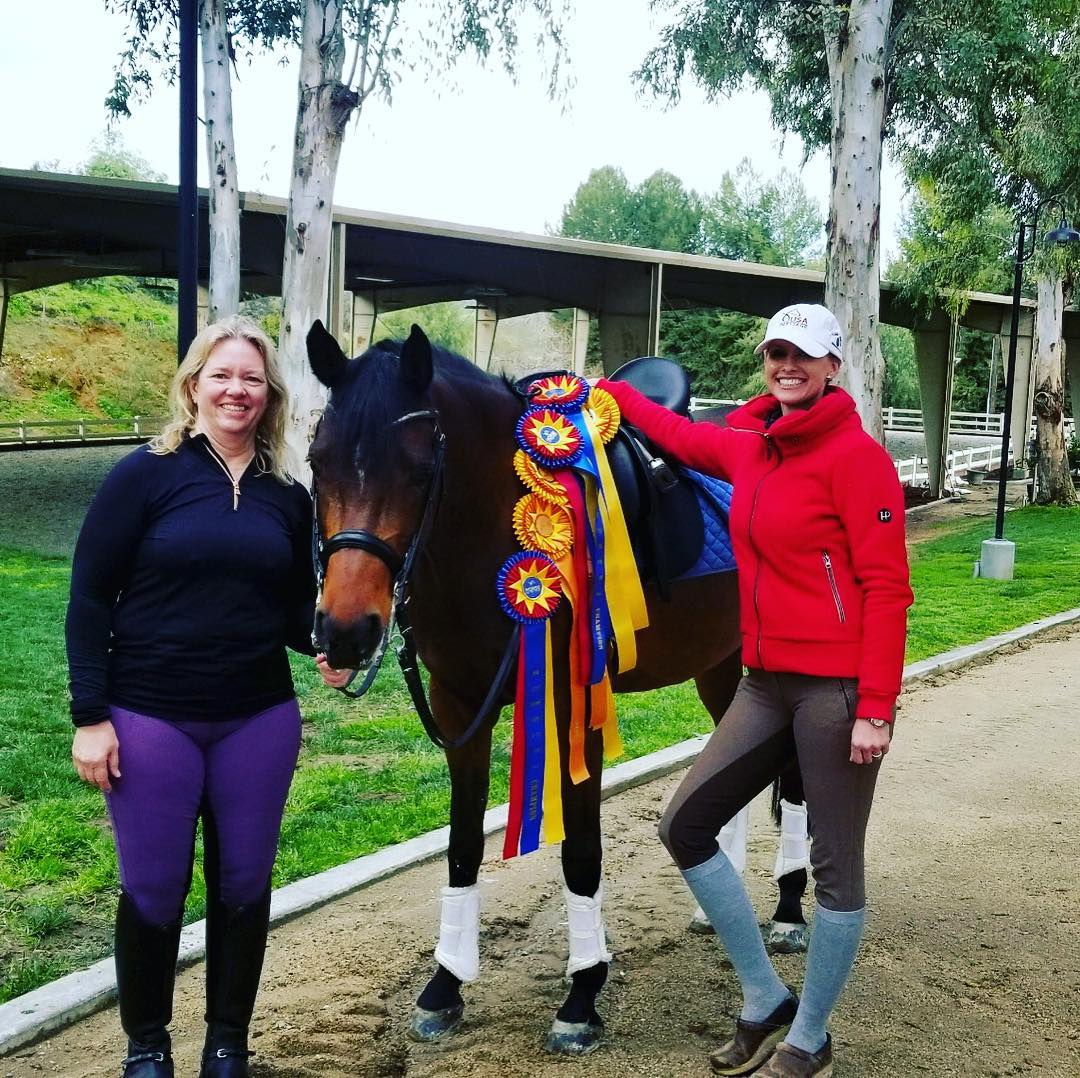
One of McGrath’s clients recently moved to Sunset Hills Dressage from a barn where she said she felt more like a second-class client than a capable rider with a respectable horse and realistic aspirations. She said in McGrath’s program, she feels like an equal whose goals matter, and her horse has responded accordingly.
“I’ve had other clients tell me that their horses are more relaxed in the ring, quieter in the stall, and standing nicely in the cross-ties when they had never been that way at other barns,” McGrath said. “The energy of a barn makes a big difference to everyone, and at the end of the day, it’s all about growing as riders, creating willing and athletic horses, having fun, and connecting with each other over a common passion.”
“When I show up at Kim’s barn, I feel the utter freedom of shedding drama at the door,” Kayvon said. “Kim and everyone else have helped me feel more balanced and connected, which, in dressage, is everything.”
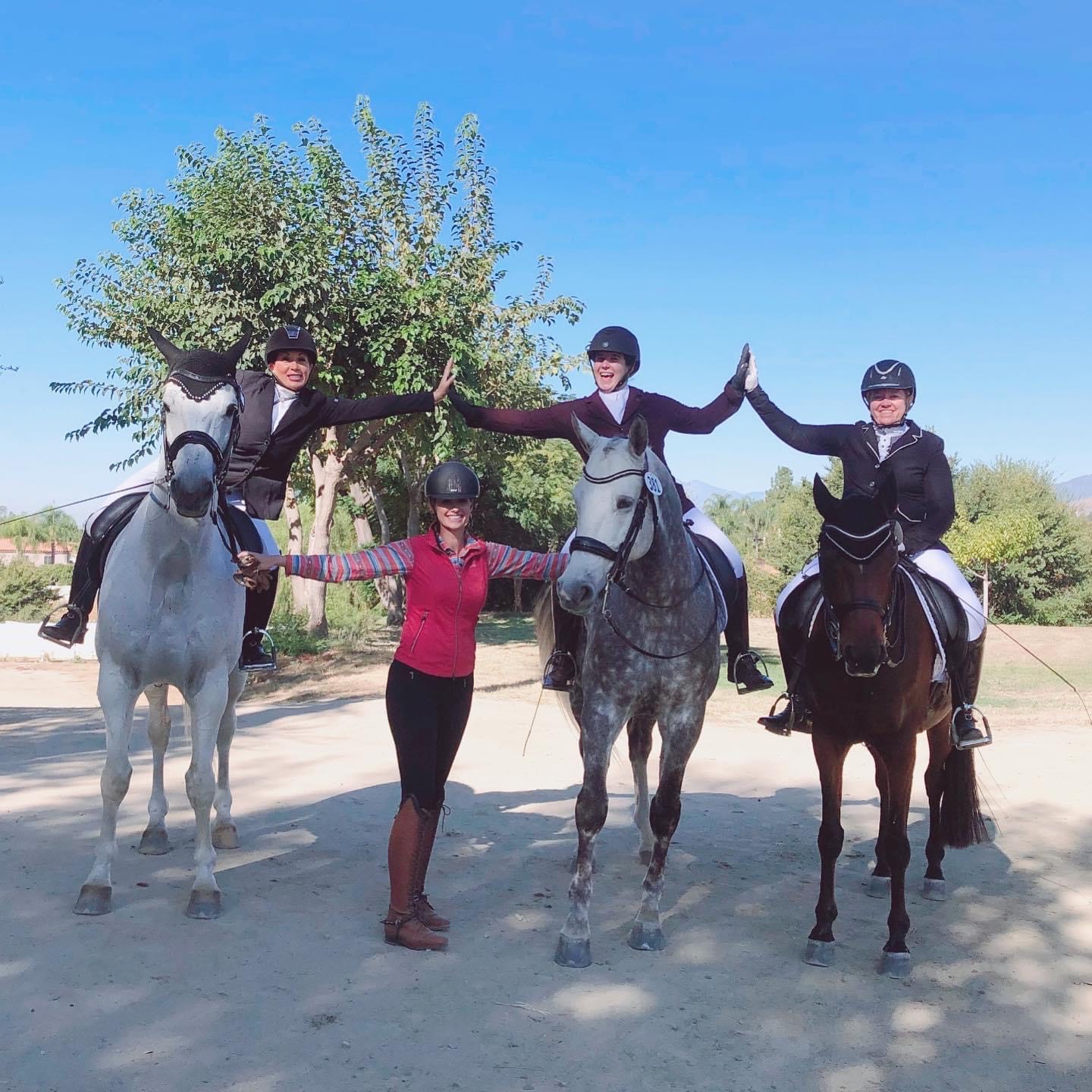
About Kim McGrath
Kim McGrath is a successful international dressage rider, coach, and trainer who believes in tailoring programs to suit individual horses and riders. Based at Sunset Hills Dressage in Southern California, she strives to build and foster productive relationships between horses and riders that cultivate compassionate horseman and willing equine partners. Her accolades include top placings at competitions like the Festival of the Horse, U.S. Dressage Finals, and the USEF Young Horse Championships.


